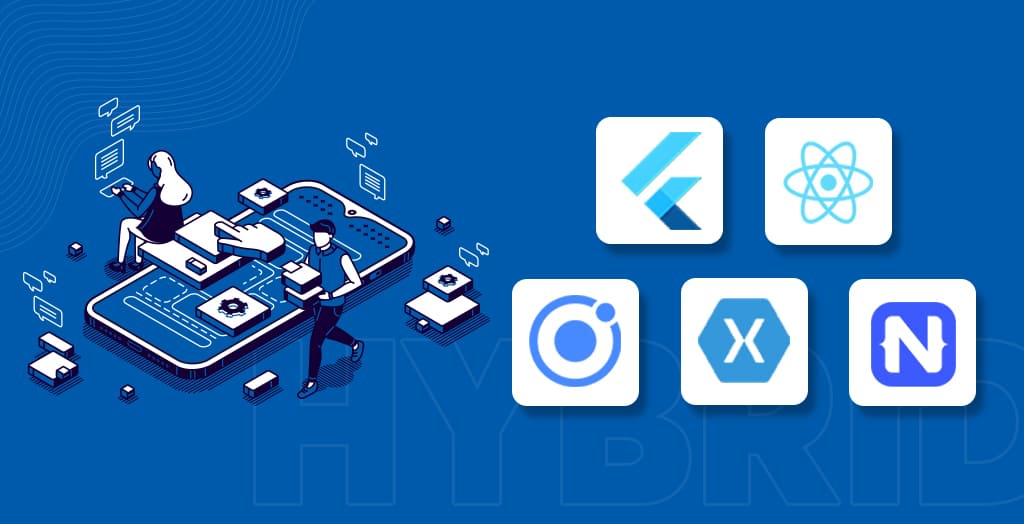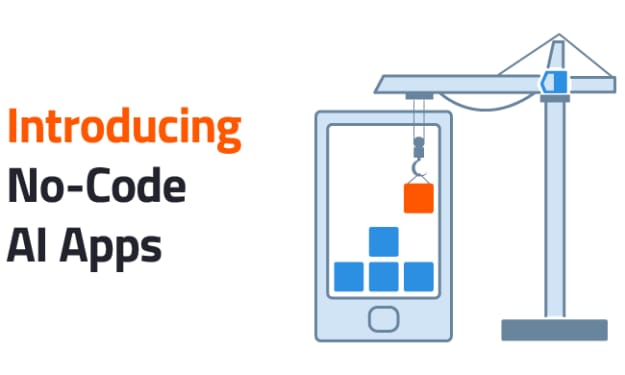The Future of Hybrid Application Development
Trends and Insights

In the rapidly evolving world of mobile technology, businesses are constantly seeking ways to enhance their digital presence and engage users across various platforms. One of the most effective strategies to achieve this is through hybrid application development. Hybrid applications blend the best of both worlds: they combine the advantages of native and web apps, offering a seamless user experience while being cost-effective and easier to maintain.
Hybrid application development involves creating applications that work on multiple operating systems, such as iOS and Android, using a single codebase. This approach not only reduces development time and costs but also ensures a consistent user experience across different devices. In this blog, we will explore the key aspects of hybrid application development, the benefits it offers, the latest trends, and how a hybrid app development company can help businesses stay ahead in the competitive market.
What is Hybrid Application Development?
Hybrid application development refers to the process of creating mobile applications that are compatible with multiple operating systems using a single codebase. Unlike native applications, which are developed specifically for a single platform, hybrid applications can run on various platforms such as iOS, Android, and Windows. This is achieved by combining web technologies like HTML, CSS, and JavaScript with native code.
Benefits of Hybrid Application Development
Hybrid applications offer several benefits that make them an attractive choice for businesses looking to expand their digital footprint:
Cost-Effective: Developing a single application for multiple platforms significantly reduces development costs compared to creating separate native applications.
Faster Time-to-Market: With a unified codebase, developers can build and deploy applications more quickly, accelerating the time-to-market.
Easier Maintenance: Updates and bug fixes can be applied across all platforms simultaneously, simplifying the maintenance process.
Consistent User Experience: Hybrid apps provide a consistent look and feel across different devices, enhancing the overall user experience.
Offline Support: Many hybrid applications offer offline capabilities, allowing users to access content even without an internet connection.
Key Technologies in Hybrid Application Development
Several frameworks and tools are used in hybrid application development to streamline the process and ensure high-quality outcomes. Some of the most popular technologies include:
1. React Native
Developed by Facebook, React Native is one of the most widely used frameworks for hybrid app development. It allows developers to build mobile applications using JavaScript and React, enabling a native-like experience.
2. Flutter
Flutter, developed by Google, is an open-source UI software development kit (SDK) that allows developers to create natively compiled applications for mobile, web, and desktop from a single codebase. It uses the Dart programming language and offers a rich set of pre-designed widgets.
3. Ionic
Ionic is an open-source framework that enables developers to build cross-platform applications using web technologies such as HTML, CSS, and JavaScript. It integrates seamlessly with Angular, React, and Vue.js, making it a versatile choice for hybrid app development.
4. Xamarin
Owned by Microsoft, Xamarin is a robust framework that allows developers to create cross-platform applications using C#. It provides access to native APIs and offers a native-like performance and user experience.
5. PhoneGap/Cordova
PhoneGap (also known as Apache Cordova) is an open-source mobile development framework that enables developers to build applications using HTML, CSS, and JavaScript. It provides a set of device APIs that allow access to device-specific features, such as the camera and accelerometer.
Latest Trends in Hybrid Application Development
The landscape of hybrid application development is continuously evolving, with new trends and technologies emerging to enhance the development process and user experience. Here are some of the latest trends shaping the future of hybrid app development:
1. Progressive Web Apps (PWAs)
Progressive Web Apps (PWAs) are web applications that offer a native app-like experience. They are fast, reliable, and can work offline, providing a seamless user experience across different devices and platforms. PWAs are gaining popularity due to their ease of development and ability to reach a wider audience.
2. Artificial Intelligence and Machine Learning Integration
Integrating artificial intelligence (AI) and machine learning (ML) into hybrid applications is becoming increasingly common. These technologies enable applications to offer personalized experiences, intelligent recommendations, and advanced features such as image recognition and natural language processing.
3. Enhanced Security Features
With the growing concern over data privacy and security, hybrid application development is focusing on incorporating advanced security features. This includes encryption, secure authentication mechanisms, and regular security updates to protect user data and ensure compliance with regulations.
4. Internet of Things (IoT) Integration
The integration of IoT with hybrid applications is opening up new possibilities for businesses. Hybrid apps can connect with IoT devices to offer innovative solutions, such as smart home automation, wearable technology, and connected healthcare systems.
5. Low-Code and No-Code Development
Low-code and no-code development platforms are gaining traction in the hybrid app development space. These platforms enable developers to create applications with minimal coding, using visual interfaces and pre-built components. This approach accelerates the development process and makes it accessible to non-developers.
The Role of a Hybrid App Development Company
Partnering with a hybrid app development company can provide businesses with the expertise and resources needed to create high-quality applications. These companies offer a range of services, including:
1. Custom Application Development
Hybrid app development companies can create custom applications tailored to the specific needs and goals of a business. This ensures that the application aligns with the brand identity and offers a unique user experience.
2. UI/UX Design
User interface (UI) and user experience (UX) design play a crucial role in the success of a mobile application. Hybrid app development companies employ skilled designers who create intuitive and visually appealing interfaces that enhance user engagement.
3. Quality Assurance and Testing
Ensuring the quality and reliability of a hybrid application is essential. Development companies conduct thorough testing to identify and fix any bugs or issues, ensuring a smooth and seamless user experience.
4. Maintenance and Support
Post-launch maintenance and support are critical to the long-term success of an application. Hybrid app development companies offer ongoing support to address any technical issues, implement updates, and ensure the application remains up-to-date with the latest technologies.
5. Cross-Platform Expertise
Hybrid app development companies have expertise in creating applications that work seamlessly across different platforms and devices. This ensures a consistent user experience and maximizes the reach of the application.
Best Practices for Hybrid Application Development
To ensure the success of a hybrid application, developers should follow best practices throughout the development process. Here are some key practices to consider:
1. Plan Thoroughly
A well-defined plan is essential for the success of a hybrid application. This includes identifying the target audience, defining the app's features and functionalities, and creating a detailed project timeline.
2. Focus on Performance
Performance is a critical factor in user satisfaction. Developers should optimize the application's performance by minimizing load times, reducing the app's size, and ensuring smooth transitions and animations.
3. Prioritize User Experience
User experience should be at the forefront of hybrid application development. This includes creating an intuitive and user-friendly interface, ensuring easy navigation, and providing a seamless experience across different devices.
4. Implement Security Measures
Security is a top priority for any mobile application. Developers should implement robust security measures, such as encryption, secure authentication, and regular security updates, to protect user data and ensure compliance with regulations.
5. Test Rigorously
Thorough testing is essential to identify and fix any bugs or issues before the application's launch. This includes functional testing, performance testing, security testing, and usability testing.
Conclusion
Hybrid application development offers businesses a cost-effective and efficient way to reach a wider audience and provide a seamless user experience across different platforms. By leveraging the latest technologies and following best practices, businesses can create high-quality hybrid applications that drive engagement and achieve their goals.
Impressico Business Solutions specializes in hybrid application development, offering a comprehensive range of services to help businesses succeed in the digital landscape. Our team of experienced developers and designers is dedicated to creating custom applications that align with your business objectives and deliver exceptional user experiences. From planning and development to testing and maintenance, we provide end-to-end solutions that ensure the success of your hybrid application.
FAQs
What is the difference between hybrid and native applications?
Native applications are developed specifically for a single platform (iOS or Android) using platform-specific languages and tools, offering optimal performance and access to native features. Hybrid applications, on the other hand, use a single codebase to run on multiple platforms, combining web technologies with native code.
How long does it take to develop a hybrid application?
The development time for a hybrid application depends on various factors, such as the app's complexity, features, and design requirements. On average, it can take anywhere from a few weeks to several months to develop a hybrid application.
Can hybrid applications access native device features?
Yes, hybrid applications can access native device features through plugins and APIs provided by frameworks like Cordova and Ionic. This allows hybrid apps to utilize features such as the camera, GPS, and push notifications.
Are hybrid applications slower than native applications?
While hybrid applications may have a slight performance lag compared to native applications, advancements in hybrid frameworks and technologies have significantly improved their performance. Proper optimization and testing can ensure a smooth and responsive user experience.
What are some popular examples of hybrid applications?
Some popular hybrid applications include Instagram, Twitter, Uber, and Evernote. These applications leverage the benefits of hybrid development to provide a consistent user experience across multiple platforms.
About the Creator
Catherine William
Hey, I'm Catherine William Experienced Web Developer. I have 5+ years of industry experience. Now I'm working with Impressico Business Solution. They are offering mobile app testing services, Business Process Services, and many more.
Enjoyed the story? Support the Creator.
Subscribe for free to receive all their stories in your feed. You could also pledge your support or give them a one-off tip, letting them know you appreciate their work.






Comments
There are no comments for this story
Be the first to respond and start the conversation.